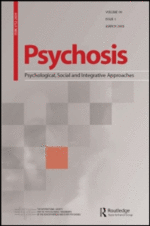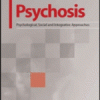
Coming to a town near you: real help for voice hearers
The Foundation for Excellence in Mental Health Care is pleased to announce that its Hearing Voices Research and Development Fund has received $250,000 in funding for a 3-year project to bring Hearing Voices peer support groups to communities across the United States and to research the mechanisms by which these peer-support groups work.
The project will train more than 100 facilitators in 5 regions of the country and create a stronger regional and local infrastructure of Hearing Voices peer support groups across the US. People who hear voices, see visions, or experience other unusual perceptions, thoughts, or actions have long been diagnosed as psychotic and given a poor prognosis. Medications provide only partial help and their benefits typically diminish over time while destructive physical and psychological side effects become increasingly problematic.
For the past 25 years, the Hearing Voices Network (HVN), an international collaboration of professionals, people with lived experience, and their families and friends has worked to develop an alternative approach to coping with voices, visions, and other extreme states that is empowering and useful and does not start from the assumption of chronic illness (see www.hearing-voices.org, www.hearingvoicesusa.org, www.intervoiceonline.org). A large scientific literature now provides support for key aspects of this approach, and the hundreds of peer-support groups that have developed in 30 countries on 5 continents are enabling voice hearers – even those who have been chronically disabled – to learn to cope more effectively or to rid themselves of the negative effects of their voices.
The US lags far behind other countries in offering this important new approach, and the new funding provides crucial support as more and more mental health organizations across the country seek training to start their own hearing voices peer-support groups. An open competition will be launched in April to choose the 5 project regions, with participants selected using a rigorous model in which mental health professionals and voice hearers collaborate in an intensive shared learning experience that itself illustrates HVN’s concepts and methods.
Equally crucial to the project is an ongoing research component that will allow identification of the distinctive components of hearing voices peer-support groups and better explain what enables them to provide such an effective and positive alternative for people diagnosed with psychosis. “This effort promises to be a movement that will measurably advance mental wellness and recovery for people in distress, their families and the community across the nation,” said Gina Nikkel, President and CEO of the Foundation for Excellence in Mental Health Care. “Hearing voices can be truly terrifying for the person experiencing them and for their loved ones. Hearing Voices Network support groups transform the fear into understanding and then empowerment.”
The Hearing Voices Research and Development Fund is jointly administered by Gail A. Hornstein, Professor of Psychology, Mount Holyoke College, and Jacqui Dillon, National Chair, Hearing Voices Network, England. Their more than 10-year collaboration models the kind of engaged research and advocacy that the project seeks to foster. More background on the project administrators can be found here. Read their recent article on hearing voices groups here.
Key partners in the project include Mount Holyoke College and the Western Massachusetts Recovery Learning Community, based in Holyoke, MA, which has pioneered the training of HVN facilitators in the US as part of its broader mission to “create conditions that can support healing and growth for individuals and the community as a whole.”



 It is just over 50 years since the publication of Sanity, Madness and the Family, R.D. Laing’s and Aaron Esterson’s groundbreaking study of ‘schizophrenia’ in 11 young women. Birkbeck Research in Aesthetics of Kinship and Community (BRAKC) and the Birkbeck Guilt Working Group have organized a one-day symposium to discuss the lasting impact of that book.
It is just over 50 years since the publication of Sanity, Madness and the Family, R.D. Laing’s and Aaron Esterson’s groundbreaking study of ‘schizophrenia’ in 11 young women. Birkbeck Research in Aesthetics of Kinship and Community (BRAKC) and the Birkbeck Guilt Working Group have organized a one-day symposium to discuss the lasting impact of that book.
 For hundreds of years, psychiatry has treated voices and hallucinations as an enemy – regarding them as ‘insanity’ or ‘madness’ and seeing them as something to be quashed and even frightened of. But today, new
For hundreds of years, psychiatry has treated voices and hallucinations as an enemy – regarding them as ‘insanity’ or ‘madness’ and seeing them as something to be quashed and even frightened of. But today, new




